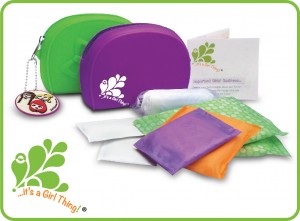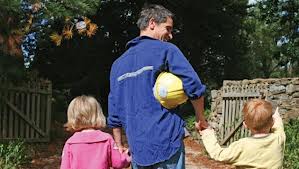![]() While browsing the web, you come across an image of a child which causes you distress. You believe the child has been sexually abused.
While browsing the web, you come across an image of a child which causes you distress. You believe the child has been sexually abused.
So, how can you report this to police?
You can report online child sexual abuse at www.thinkuknow.org.au by clicking the Report Abuse button. Reports of this nature go directly to our Child Protection Operations team for assessment.
In any situation where a person or child is in immediate danger, call Triple Zero (000).
Protecting children is everyone’s business. This White Balloon Day, think about how you can help to make Australia the safest place in the world for our kids.

 The power of a “Date with Dad” is all about “being there” and spending time talking with your kids, it is so profoundly meaningful that we often miss it. Kids thrive when their dads take the time to be 100% present and are available to them. A regular, “Date with Dad” with each of your kids separately is a great place to begin intentionally investing in the overall health and well-being of your child. Date nights, days or even mornings do not have to be complicated. They can be a simply getting an ice-cream and going for a walk or sit in the park and chat.
The power of a “Date with Dad” is all about “being there” and spending time talking with your kids, it is so profoundly meaningful that we often miss it. Kids thrive when their dads take the time to be 100% present and are available to them. A regular, “Date with Dad” with each of your kids separately is a great place to begin intentionally investing in the overall health and well-being of your child. Date nights, days or even mornings do not have to be complicated. They can be a simply getting an ice-cream and going for a walk or sit in the park and chat.

 It is not surprising that Australia Post won the best print advertisement at the Caxton Awards in 2007. M&C Saatchi Melbourne created the advertisement rightly named “Letter Hug”. In a previous post we spoke briefly of keeping in touch in between visits by sending a card, for the purpose of this post we should call it the “Card Hug”. The cards are simply written with loving words that ensure your children know they are top of mind even when you are not there. It can be a message saying you have arranged something special for the next time they visit, or you were remembering the last weekend and how much fun you had together.
It is not surprising that Australia Post won the best print advertisement at the Caxton Awards in 2007. M&C Saatchi Melbourne created the advertisement rightly named “Letter Hug”. In a previous post we spoke briefly of keeping in touch in between visits by sending a card, for the purpose of this post we should call it the “Card Hug”. The cards are simply written with loving words that ensure your children know they are top of mind even when you are not there. It can be a message saying you have arranged something special for the next time they visit, or you were remembering the last weekend and how much fun you had together.

 In this contemporary setting a father has an equal role in parenting his children and in many cases is the primary or sole carer. Dads are striving to be better role models in their sons and daughters lives but don’t necessarily have the confidence or the skill to handle all the issues that arise.
In this contemporary setting a father has an equal role in parenting his children and in many cases is the primary or sole carer. Dads are striving to be better role models in their sons and daughters lives but don’t necessarily have the confidence or the skill to handle all the issues that arise. Watching Dr Phil the other day I listened to how a girl was out drinking with a group of “so called friends” boys, they all got drunk and she was gang raped.
Watching Dr Phil the other day I listened to how a girl was out drinking with a group of “so called friends” boys, they all got drunk and she was gang raped. There’s no doubt the Fly In Fly Out lifestyle is tough on the families of mining workers. Ever since the 1980’s, Australian gas, oil and mining operation staff are required to fly out to remote locations to work ten to fourteen hour shifts for two to six weeks at a time. While the financial gains from this type of work are generous, the long term effects on individuals, couples and especially families are difficult to ignore.
There’s no doubt the Fly In Fly Out lifestyle is tough on the families of mining workers. Ever since the 1980’s, Australian gas, oil and mining operation staff are required to fly out to remote locations to work ten to fourteen hour shifts for two to six weeks at a time. While the financial gains from this type of work are generous, the long term effects on individuals, couples and especially families are difficult to ignore. I have been a separated dad for over 25 years, twice over. Its something I am not proud of but I am proud of being a good dad. I have had two very different experiences. My first child was every second weekend, I did everything I could to be in her life – as much as I was allowed or welcomed.
I have been a separated dad for over 25 years, twice over. Its something I am not proud of but I am proud of being a good dad. I have had two very different experiences. My first child was every second weekend, I did everything I could to be in her life – as much as I was allowed or welcomed.
















Recent comments